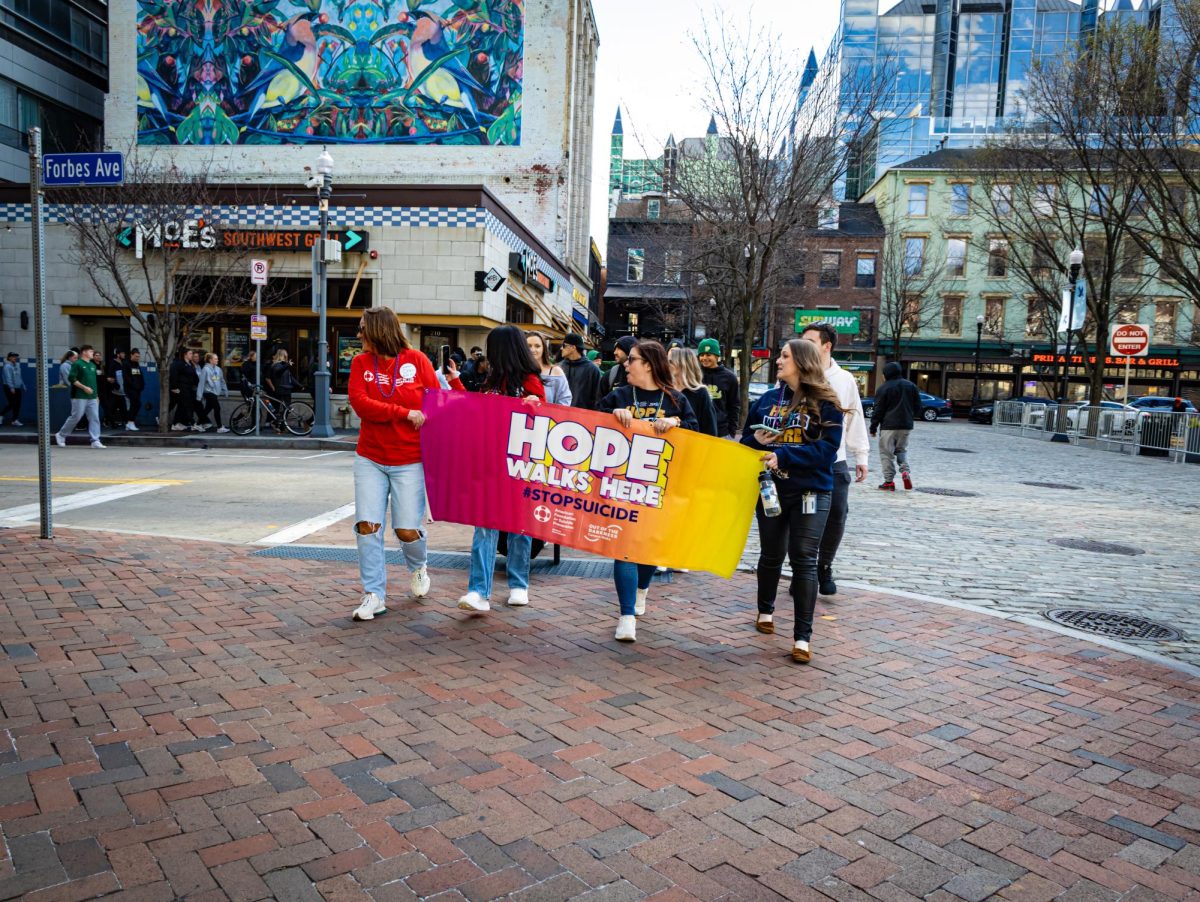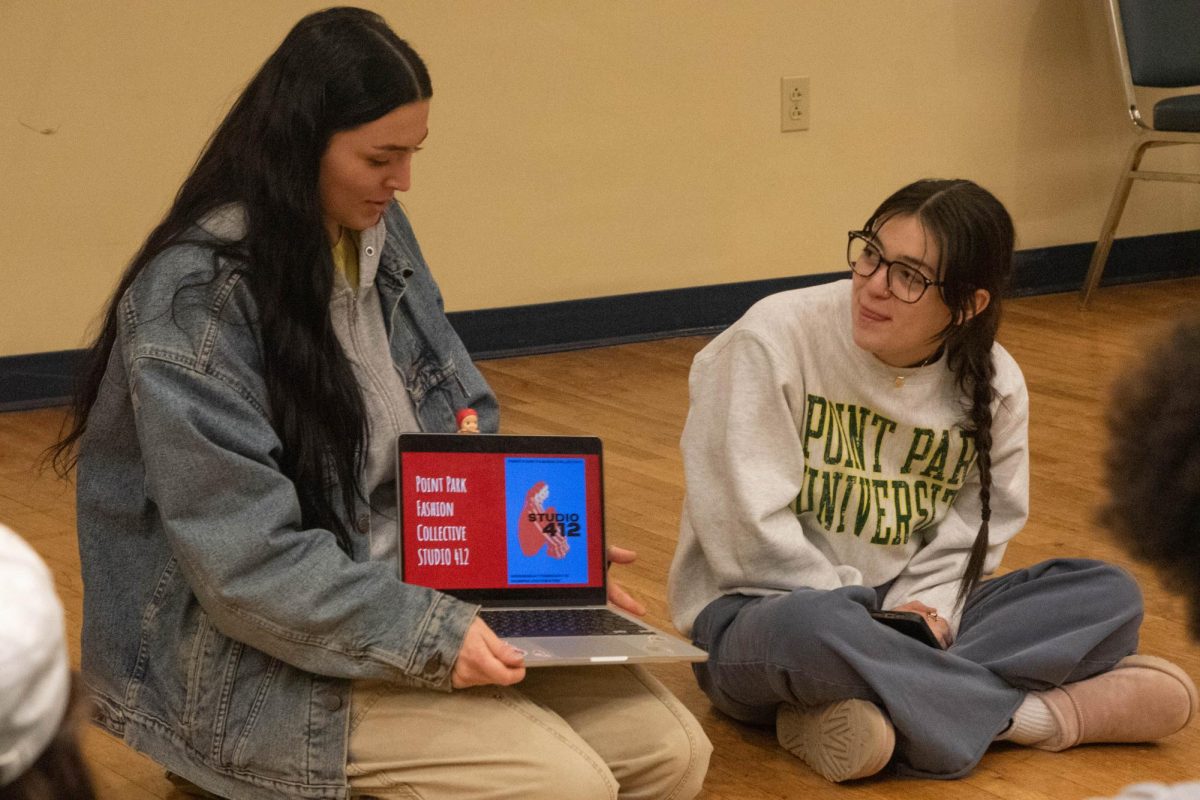When Jose Olavarria Baeza first came to the United States, he stayed inside his house for days trying to read a single chapter of a novel in English. He did not speak to anyone in class, fearing that he would be laughed at for not knowing the language. Three years later, he is attending Point Park University, speaking expressively in English about having two nationalities and advising Chilean exchange students on how to adapt to American culture through American Field Service (AFS). “It’s great to work at this organization. I think it helped me a lot to understand people, and now I’m trying to help other students do the same thing,” Olavarria Baeza said. “Even by listening to them, you can help them.” As a volunteer of AFS, he speaks with Americans leaving to study abroad in Chile to help them become familiar with his culture. He also speaks of his own experiences to Chileans wishing to study in the United States, and provides advice on everything from learning the English language to what to expect from American girls in the world of dating. Rachel Kennedy, a high school friend of Olavarria Baeza, believes that he is perfectly suited for AFS. “I think that he remembers sitting in his room and all the studying and all the stuff that it really took to get to know the language,” said Kennedy, a senior at the University of Akron. “And I think that him knowing English was definitely a good benchmark for him to help other students from around the world to get to know their environment better and just experience a lot of what Chile has to offer.” Growing up in Santiago, Chile, a city with nearly five million inhabitants, Olavarria Baeza first heard the English language at a young age from his parents, who met as exchange students in the United States. Despite the influence of his parents, he did not learn English until later in life when he became the only child out of four to leave Chile and live in another country. “Since I was very young, I remember I just wanted to travel somewhere,” Olavarria Baeza said. “I didn’t care where, but I just wanted to go outside of Chile and learn another language. And when I was 17, that’s what I did.” During his junior year of high school, Olavarria Baeza became president of his Student Council in 2006, a year when a national uproar was occurring amongst students in Chile. In the “Penguins’ Revolution,” so named for the students’ black and white uniforms, students protested for equality among private and public schools. Olavarria Baeza, feeling that the movement was a noble cause, led a student take-over of the school, where students blockaded the entrances and slept inside the school for six days. “For me, it was very stressful because I had to be in charge of everything. There were some neo-Nazi groups outside, and in some schools they got in and would beat the kids, so we didn’t want that to happen to us. I was in charge of security,” Olavarria Baeza said. “I had to be in charge of the food. I didn’t eat so many times because we didn’t have enough food, so we gave everybody else our rations.” Although Olavarria Baeza said taking charge of this movement was one of the most difficult things he has had to do, moving to the United States after graduating and starting his second senior year at Norton High School in Ohio was even more challenging. “I think of it and I still feel those butterflies. I hate lockers,” Olavarria Baeza said. “We don’t have those back home. It took me the whole day just to figure out how to open it.” Since he was not yet fluent in English, he worked tirelessly on homework and spent nearly an hour trying to read one page of a book. In addition to frustration, he also experienced embarrassment after walking around a mall for hours, not knowing where to find the bathroom. “I didn’t know the word ‘restroom’ back then … I remember seeing this sign that said ‘restroom,’ and I thought, ‘What does that mean? I don’t want to rest, I want to go to the bathroom,'” Olavarria Baeza said. “I was afraid of asking someone because my English wasn’t good enough back then, so I was afraid of making a fool of myself. But after two hours of trying to find a restroom, believe me, you just do whatever it takes.” For the first several months at Norton High School, Olavarria Baeza felt powerless for not being able to express himself until one student, Tiffany Diefendorf, befriended him. She said he often underestimated his abilities, and his insatiable appetite for learning helped him assimilate easily into American culture. “He was always asking questions about the language and about the culture, and he’s just real fun to be around and hang out with,” said Diefendorf, a junior at Kent State University.
Chilean creates cultural confluence
Written By Emily Petsko
•
June 29, 2016
0
Navigate Left
-
FEATURES'Burgh Bites: The best bites from this academic year
-
 FEATURESCAB hosts annual Spring Fling
FEATURESCAB hosts annual Spring Fling -
 FEATURES'Burgh Bites: Lola's Eatery: Pricey but delicious
FEATURES'Burgh Bites: Lola's Eatery: Pricey but delicious -
 FEATURES'Burgh Bites: The Nook: Trypophobia trigger warning
FEATURES'Burgh Bites: The Nook: Trypophobia trigger warning -
 FEATURESSecond annual 'Out of the Darkness' walk for suicide awareness
FEATURESSecond annual 'Out of the Darkness' walk for suicide awareness -
 FEATURES'Burgh Bites: Melt'd: An overpowering amount of barbecue
FEATURES'Burgh Bites: Melt'd: An overpowering amount of barbecue -
 FEATURESFormer SGA president books commercial with Ohio Lottery
FEATURESFormer SGA president books commercial with Ohio Lottery -
 FEATURESStudio 412 brings fashion to Point Park
FEATURESStudio 412 brings fashion to Point Park -
 FEATURES'Burgh Bites: Page's Dairy Mart: Saucy South Side hot dog
FEATURES'Burgh Bites: Page's Dairy Mart: Saucy South Side hot dog -
 FEATURESJuried Art Exhibition displays student photography
FEATURESJuried Art Exhibition displays student photography
Navigate Right

